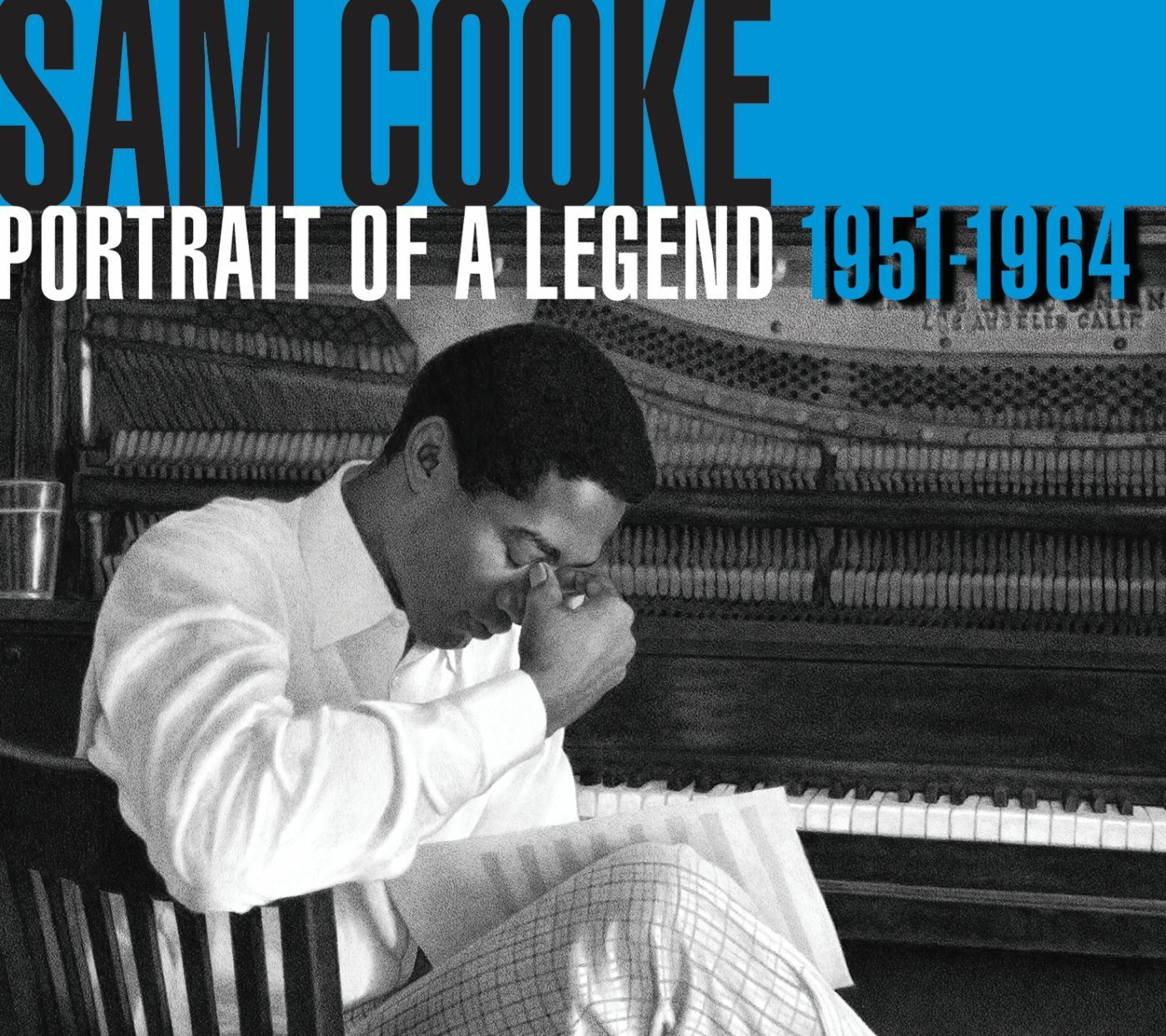Now Playing
Current DJ: Tony Breed
Soften Sun Comes Out from Soften Forever (self-released) Add to Collection
Requests? 773-DJ-SONGS or .(JavaScript must be enabled to view this email address)
 Jerry Wexler, the legendary Atlantic Records producer, once said, “Sam Cooke was the greatest singer that ever lived, no contest.” That’s some praise from the man who produced Aretha Franklin, Ray Charles, and many others. But the 2003 compilation, Portrait of a Legend 1951-1964, does some justice to this praise. Unfortunately, it focuses mainly on his excellent pop work at the expense of his largely superior gospel records with the Soul Stirrers in the 1950s. Critic Dave Marsh once wrote something like that Cooke’s best records were his gospel ones, with 1964’s civil rights anthem, “A Change is Gonna Come,” being the exception that proves the rule.
Jerry Wexler, the legendary Atlantic Records producer, once said, “Sam Cooke was the greatest singer that ever lived, no contest.” That’s some praise from the man who produced Aretha Franklin, Ray Charles, and many others. But the 2003 compilation, Portrait of a Legend 1951-1964, does some justice to this praise. Unfortunately, it focuses mainly on his excellent pop work at the expense of his largely superior gospel records with the Soul Stirrers in the 1950s. Critic Dave Marsh once wrote something like that Cooke’s best records were his gospel ones, with 1964’s civil rights anthem, “A Change is Gonna Come,” being the exception that proves the rule.
When I first heard this compilation, despite some familiarity with hits like “Chain Gang” and “Cupid,” I was struck by how many of the songs used the same basic chord progression (some variation of I-IV-V, as it’s called in music theory terminology), and so I had trouble seeing how this CD deserved a spot so high on Rolling Stone’s list of the greatest albums ever (putting aside quibbles about if compilations should be included). Over time, the more I’ve gotten into Cooke’s music, I’ve grown to appreciate the variety in the arrangements on these songs even as the chord progressions still sound the same across most songs.
“You Send Me,” Cooke’s first pop hit, has been called a landmark, selling over two million copies upon its release in 1957 and making Cooke into one of the first black pop teen idols. His smooth delivery and famous “yodel” (“Whoa-oh-oh . . .”) made him distinctive, but his impassioned gospel influences don’t always show up on these pop hits. Still, several of the tracks do show a gospel influence, especially “Bring It On Home To Me,” featuring Lou Rawls on backing vocals.
Cooke was a fantastic songwriter who was a rare example of an African American artist in these years with significant creative control, including with his own record label on the side, SAR Records. And speaking of record labels, Cooke recorded for several of them, which makes licensing and compiling his work a nightmare, so this is the most comprehensive collection of his work we’re likely to get: this is the only in-print Cooke collection that I know of where “You Send Me” and “A Change is Gonna Come” appear together.
One of the strengths of this compilation is the variety in the types of material represented: there’s original pop and gospel and soul, but there’s also blues (“Little Red Rooster”) and older pop standards (“Summertime”), as well as up-tempo dance tunes like “Twistin’ the Night Away” and “Shake.” Another, compared to previous Cooke compilations, is the superb, clear remastering, which really makes certain tracks (“Bring It On Home To Me” comes to mind) come to life in a way that they hadn’t previously in the CD era. And then there’s the variety in of arrangements, from the smooth “You Send Me” to the more propulsive “Win Your Love For Me” and “Just For You,” to the eerie, strings-drenched “A Change is Gonna Come.”
Today when I listen to the album I have a much greater appreciation for the conventions within which Cooke was working (including in terms of chord progressions), and I think that this is an essential one-stop shopping place for surveying the arc of Cooke’s career, though I would have preferred more gospel recordings from his years with the Soul Stirrers, like “Mean Old World,” “He’s So Wonderful” (redone as the pop track, “Lovable,” here), “He’s My Friend Until the End,” “Jesus, Wash Away My Troubles,” and others.
The bridge between his pop and gospel worlds, as Marsh indicated, is “A Change is Gonna Come,” which gained greater cultural currency in the last decade with Barack Obama’s election as President. When Cooke’s friend, musician Bobby Womack, heard “Change,” he said something like, “It’s eerie, it sounds like death,” and Cooke was killed amid mysterious circumstances within a year of its recording.
When I first heard “Change” in full on this compilation, more familiar with Otis Redding’s and Aretha Franklin’s sparser covers, I honestly was overwhelmed by the orchestral arrangement, but a friend’s comment that you can tell that Cooke means every word he’s singing sent me back to this version, and today it is my favorite version of this oft-covered classic. Indeed, when Cooke sings, “It’s been too hard livin’, but I’m afraid to die/ ‘Cause I don’t know what’s up there beyond the sky,” even—maybe especially—with the ghostly strings, it moves me in a way that it didn’t when I was a kid.
Cooke’s writing, steeped in vernacular sayings (“You Send Me,” “Bring It On Home to Me”), yielded some remarkable pop songs, as I can hear now, as others (including Aretha Franklin) have commented on the way you can visualize the men in “Chain Gang”—you can feel the sensory dimensions of what Cooke is describing in his lyrics.
Overall, I highly recommend this set today, though I am sympathetic to new listeners who might not appreciate it initially.
Next entry: Don’t Play With Your Food…Hang Out With CHIRP This September!
Previous entry: This Week @ CHIRP Radio (Week of September 5)